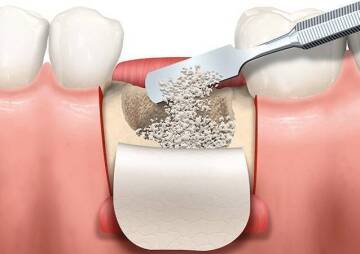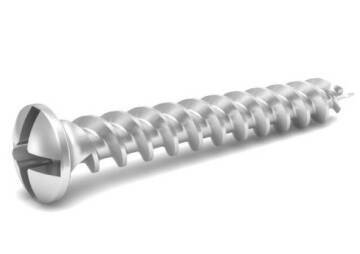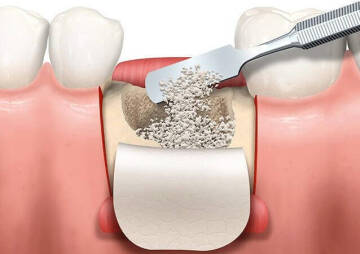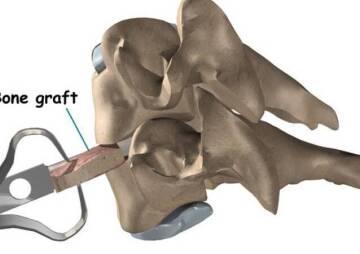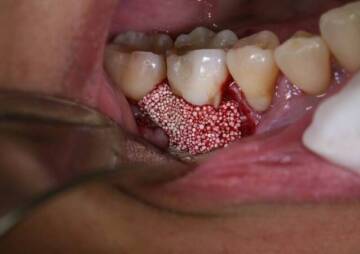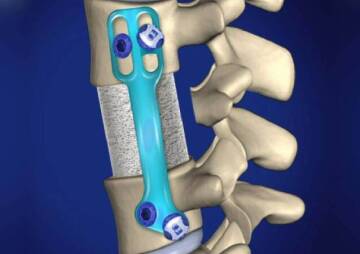-
Category
Craniomaxillofacial Surgery
Orthopedic Surgery
Spine Surgery
Orthopedic Implants
Hip Surgery
Knee Surgery
Pectus Excavatum
Bone Graft
Disinfectants
Healthcare
How Does A Bone Graft Work?
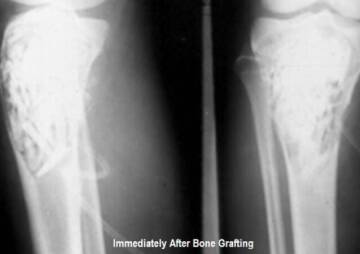
How does a bone graft procedure work? Living bone cells in bone grafts cause the damaged bone to mend and regenerate appropriately. Bone grafts are widely used in both orthopedic and dental surgeries
Most likely, if you are reading this article, you need a bone graft to repair or strengthen some of your body's loosened or damaged bones. This could be a bone in one of your limbs or a bone in your jaw. In other words, bone grafts are widely used in both orthopedic and dental surgeries.
How does a bone graft work? Another question you may have is about the risks and consequences of using bone grafts. But don't worry; by reading this article, you'll get the answers to all of your questions.
How Bone Graft Works
First, it's important to remember that your surgeon can take bone from another part of the body and surgically fuse it to the existing bone in a bone graft procedure. Alternatively, the surgeon can use artificial grafts. But how do these bone grafts work?
Bone matrix is found in the skeletal system. It is a hard material that helps to strengthen bones. The matrix is formed and maintained by live bone cells within it. When a bone in your body fractures in an accident or is injured by bone disease, the healing process begins. Doctors fuse bone grafts containing the matrix and living cells to the affected area if the fracture is very severe. Your surgeon inserts a new piece of bone into the damaged area, and the cells within the new bone can then attach themselves to the old bone. As a result, living bone cells in bone grafts will form a matrix and heal damaged bone.
Read more about bone graft here: What is a bone graft?
Use Of Bone Grafts In Orthopedic Surgeries
Surgeons usually perform bone grafting to improve healing in the hips, knees, and spine. However, this is not limited to the bones of these locations and can be used in other parts of the body depending on the severity of the bone damage. You may be curious to know if you need a bone graft or not. A bone graft is something you've probably heard of, and it promotes bone healing and growth for a variety of medical reasons. The following are the most common reasons you may need a bone grafting procedure:
- Severe and multiple fractures that did not heal with initial treatment and the bone did not heal properly;
- Acute bone diseases, such as osteonecrosis or cancer, in which parts of the bone are degenerated and cannot be healed without a transplant;
- In spinal fusion surgery, a graft can be used to help two bones heal together across a damaged joint;
- Infection-caused bone injuries; In this case, doctors use a small amount of bone transplants in bone cavities.
- To aid bone healing, grafts can be utilized around medically implanted devices such as joint replacements, plates, or screws.
Risks Of Bone Grafting In Orthopedic Surgery
Complications of this procedure are one of the most important factors that all patients are concerned about and want to know everything about it. Bone grafting, like other surgeries, can involve risks. However, the patient's main concern is whether artificial bone grafts will cause other serious problems. In general, this procedure is a low-risk operation if performed by a specialist physician. The following are some of the possible side effects:
- Pain and swelling
- Nerve damages
- Inflammation
- Infection
- Forming blood clots
- Rejection of the bone graft
- Complications from anesthesia
- Reabsorption of the graft
How Does A Dental Bone Graft Work?
In addition to orthopedic surgery, bone grafts are commonly used in dental-related procedures such as dental implants. Sometimes when you lose your tooth for any reason, your dentist will suggest a dental implant. However, to provide a strong foundation for the implant, your jaw must have enough healthy and strong bone. A dental bone graft is one of the most effective and efficient techniques for building healthy bone in your jaw and ensuring a successful implant.
How does a bone graft work in your jaw? Loss of one or more adult teeth, as well as gum disease, all contribute to bone loss in the jaw over time. In these cases, the dentist or specialist makes a small incision in the jaw. The jaw is then attached with bone grafts taken from other parts of the patient's body, such as the hip and tibia, as well as artificial bone grafts. This makes the jawbone stronger over time and prepares it for any operation.
Who needs a dental bone graft?
- Patients who are candidates for dental implants are the most likely to benefit from dental bone grafts;
- Patients who have experienced bone atrophy due to tooth loss or some gum disease;
- People who have lost part of their jawbone as a result of an accident are more likely to receive a bone graft;
- You should undergo a bone graft at the dentist's discretion if you have any other special conditions.
Risks Of Dental Bone Grafting
Dental bone transplants are commonly associated with both mild and severe side effects. Suppose this is done under the supervision of a specialist and in a fully equipped condition. In that case, you will only experience some of the common side effects, such as swelling and pain and difficulty chewing or talking for a few days. Otherwise, you may experience the following complications, which are very dangerous:
- Infection;
- The formation of blood clots can be life-threatening if they reach the lungs and heart;
- Nerve damage in parts of the jaw and face;
- Rejection of the bone graft.
Health News Center Bone Grafts
Health News Center is a reputable orthopedic product distribution company offering the best and highest quality products. You can trust Health News Center products if you want to use high-quality artificial bone grafts free of potentially dangerous components. Health News Center provides the highest quality, most porous, osteoconductive, and bioactive bone substitute for filling and restoring bone defects. Our company's bone grafts were investigated in various ways, and the research lab results show that these substances are completely safe and will not cause any side effects. You can contact us for more information about bone grafts. Our team experts will answer your questions as soon as possible.

